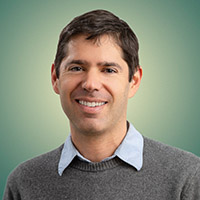The Weird, Beautiful Oyster
 In this episode of Unconfined, Dave Love explains oyster farming, why it’s impossible to industrialize it, and how oysters offer benefits ranging from amino acids to storm surge buffers.
In this episode of Unconfined, Dave Love explains oyster farming, why it’s impossible to industrialize it, and how oysters offer benefits ranging from amino acids to storm surge buffers.

Be Brave, Eat an Oyster
By Christine Grillo Subscribe to Host Notes
For this piece, and forever, I’m going to spell it “meroir,” not “merroir,” and I’m not budging on that. I’m hoping that all my ostreophiles* out there will back me up on this.
Meroir is a concept that builds off of “terroir,” a term from the French that encompasses all the unique environmental factors—soil composition, climate, microclimate, rootstock, and more—that give every vineyard its distinct fingerprint, which is passed down into the grapes and wines produced there. Oenophiles, or wine connoisseurs, often talk about terroir when they’re discussing the characteristics of particular wines.
In turn, meroir refers to the factors that have an impact on the flavor of oysters—the seabed, tidal flows, anything that affects salinity, and even the ripeness of the oysters’ gonads. When you meet oyster connoisseurs in the wild, you might overhear them talking about meroir. (Here’s a nice guide to meroir from Aquaculture Magazine. Please excuse the terrible typo in the headline.)
What I love about the concept of meroir is that, as Dave Love explains in episode 13 of Unconfined, it helps to connect people to a place. Dave is a Research Professor in the Johns Hopkins Department of Environmental Health and Engineering, and at the Center for a Livable Future, where he has worked for 14 years. As he says, “When you know a place, you fall in love with it, and then you want to protect it.” His love of place comes through when he talks about growing up on the Lynhaven River in Virginia, with a salt marsh behind his house, messing around with minnow traps. The Lynhaven is famous for its oysters, and apparently, when Captain John Smith sailed into the Chesapeake Bay, he pulled up oysters the size of dinner plates.
Dave has a lot of love for the Lynhaven, and for oysters in general. (He speaks fondly of mussels, too.) Oysters provide important nutrients, such as B12, zinc, copper, and selenium, they contain all nine essential amino acids, and a bit of protein, as well. One of the things he loves about them is that he sees them as a “local food,” and a source of local and national pride. People get really excited about the oysters that come from their communities. He compares the oyster market to the craft beer market, with oysters becoming an artisanal food gaining popularity among foodies. Part of the appeal, he says, is that they really can’t be farmed industrially. The farming of oysters has to be small-scale. For those who want to be drawn into the romance of oysters, Dave recommends this book by Rowan Jacobsen.
One of the good news items that Dave shares on the episode comes from research he co-authored in 2019. This research, published in The Journal of Aquaculture and The Journal of Food Protection, investigated food safety and cold chains in the oyster industry. Using sensors placed in oysters at the beginning of transport, and removed by chefs at the end of transport, the researchers were able to determine that the cold chains are working well. As Dave says on the episode, ice is critical when it comes to oysters: cold chain integrity is the key to preventing food poisoning.
As climate change escalates, oysters can offer some great ecosystem benefits. Coastal cities are being stressed by sea level rise, and oyster reefs can help to buffer storm surges and provide habitat that will also buffer storm surges. We should be creating more oyster reefs, and it’s not that hard to do. We should also protect wetlands. “Wetlands are incredibly productive places,” says Dave.
He concludes our conversation by stating what should be obvious: there are not going to be more wild fish in the sea, but the human population continues to grow (and eat). “We need farming,” he says, “but we need to do it responsibly.” And what exactly entails responsible farming? For starters, farmers should pay keen attention to how their activities affect ecosystems, habitat, and the work force.
Here's another fact that should be obvious, but for some reason wasn’t to me: when you eat a raw oyster, you’re eating a creature that’s still alive. But it’s delicious. Dave says, “Be brave, eat an oyster.”
*This is an admirable post by Nigel Moore, who turns to Greek and Latin to explain why “meroir” and “ostreophile” are correct, and those other spellings are not.
In Host Notes, the voices behind Unconfined podcast deliver additional context to supplement our interviews. Their views do not necessarily reflect those of the Johns Hopkins Center for a Livable Future or the Johns Hopkins University.